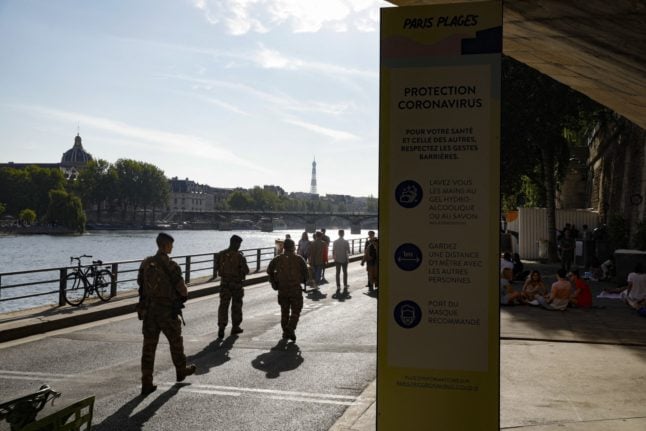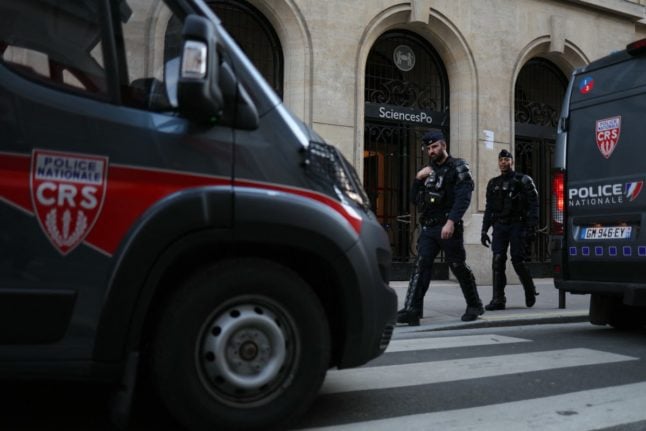“Given the claim of responsibility for the attack by the Islamic State and the threats weighing on our country, we have decided to raise the Vigipirate status to its highest level: emergency attack,” said Attal on Sunday, raising the level again just three months after it was lowered in January.
On Monday, the prime minister told French media that an additional 4,000 soldiers were “on alert and mobilised” in addition to the 3,000 soldiers already deployed at sensitive sites across the country.
“The Islamist terrorist threat is real, strong, and we are fully mobilised to face it,” the prime minister said during a visit to the security headquarters at the Saint Lazare train station in Paris.
“We are on the alert all the time, with our Operation Sentinel soldiers, our SNCF security guards and our intelligence services (…) The threat is serious and the safety of the French people is paramount, which is why we have increased our vigilance,” Attal said.
France spent the final part of 2023 on the maximum terror alert after an Islamist-inspired attack in a school in Arras, northern France in October, in which a teacher was killed and two other staff members wounded.
After that attack the government also deployed some 7,000 soldiers to security duties.
Operation Sentinelle
If you’ve been in a French city – or at a railway station or airport – since 2015, you will likely have noticed soldiers on patrol.
These are the ‘sentinelles’ (guardians) who conduct regular patrols – their name comes from Opération Sentinelle, which is the military name for the security operation, and they have become a regular sight in recent years.
It began in 2015 after the terror attacks at the Charlie Hebdo magazine offices, which killed 12 people.
Then-president François Hollande ordered soldiers to be deployed to provide extra security for anywhere that was likely to be a terror target. They are generally deployed at high-profile tourist sites such as the Eiffel Tower or at mainline train stations and airports.
They also do regular street patrols and you will often see them either patrolling on foot or travelling in marked patrol cars.
Since October 2023 they have also been deployed at schools and at Jewish religious sites, in the context of increasing tensions since the Hamas attacks in Gaza and Israel’s military response.
Who are they?
Soldiers on patrol with Opération Sentinelle are regular members of the French army – units do a rotation of Sentinelle duties, so you will see a variety of different regiments (with different headgear) on patrol.
Once they have finished their period of duty with Sentinelle, soldiers return to their normal military duty – whether that is in France or overseas.
At any one time, 10,000 soldiers will be under the command of Operation Sentinelle, of which 3,000 are military reservists.
The majority of them are French, but soldiers of the Légion Etrangère – French Foreign Legion – also take part in patrols.
They patrol in uniform with weapons and their role is purely security and anti-terror focused – they don’t take part in other policing activities such as catching pickpockets or dishing out parking tickets.
After nine years, they’ve become a normal sight in French cities and at lunchtime you might see them queuing up – big guns and all – in the boulangerie for lunch.



 Please whitelist us to continue reading.
Please whitelist us to continue reading.
Member comments